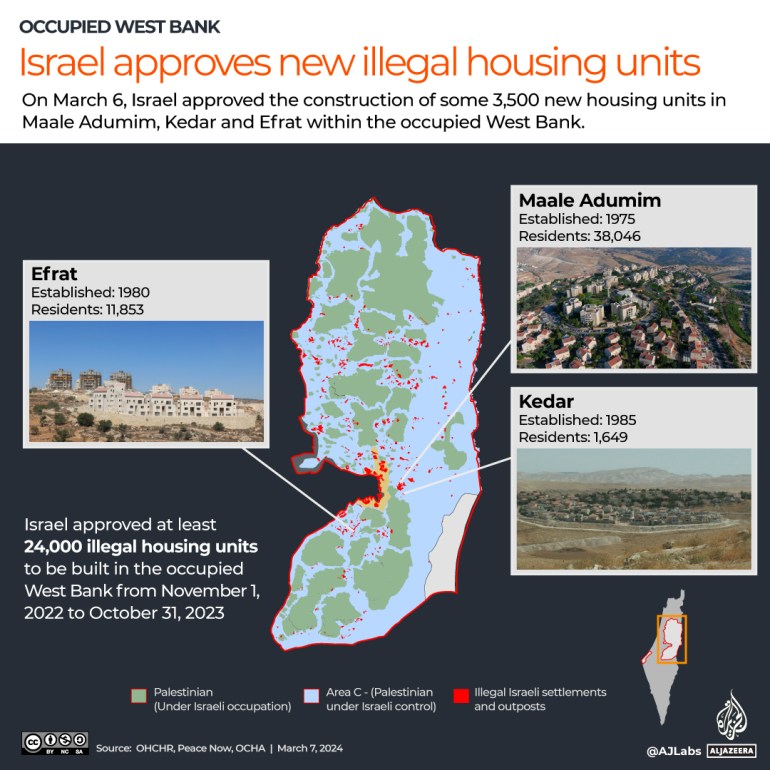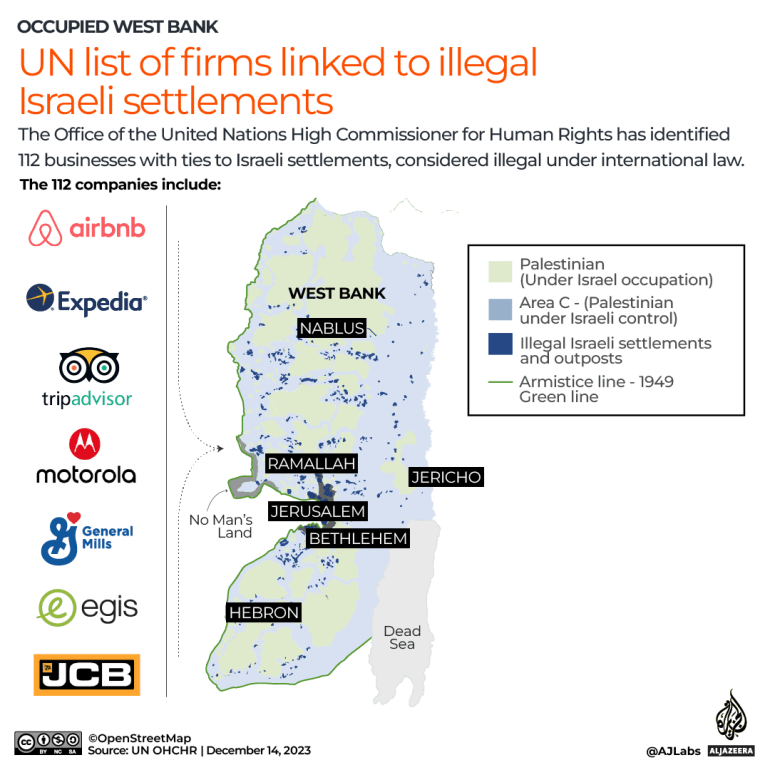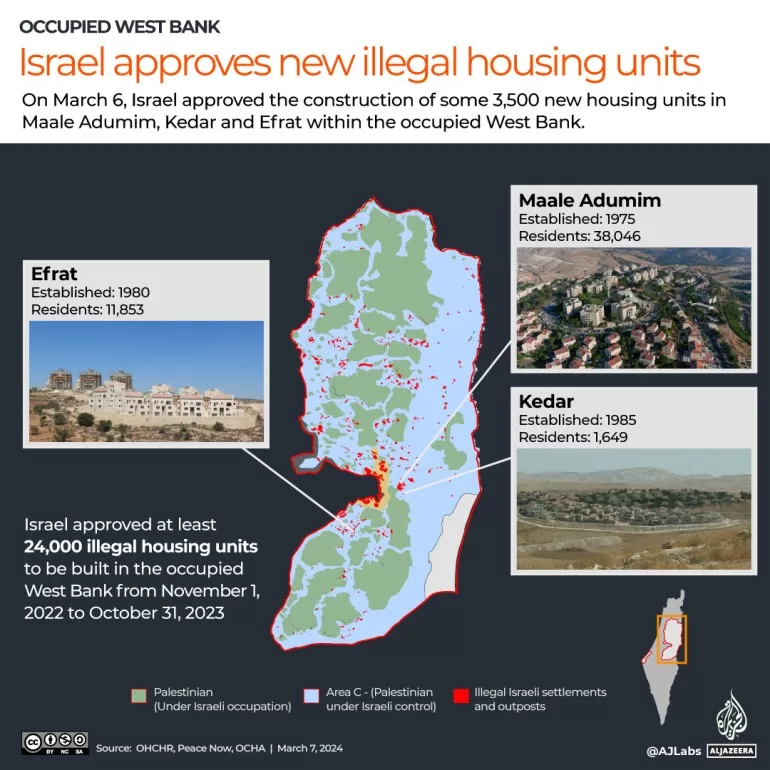The Israeli army’s Civil Administration handed more control over the occupied West Bank to the Settlements Administration, led by far-right Finance Minister Bezalel Smotrich, who lives in an illegal settlement himself.
Now Smotrich and his Settlements Administration control more things, like building regulations and the management of farmland, parks and forests.
Since he entered government, Smotrich has pushed openly for more Israeli settlements in the occupied West Bank – illegal under international law – as steps towards annexation.
So what does this all mean?
What’s the Settlements Administration?
It was set up back in February 2023, after lots of political wrangling between Smotrich – who is also a minister within the Ministry of Defense – and Yoav Gallant, the defence minister.
There were a lot of details, but the upshot is that the responsibility for monitoring illegal construction in the occupied West Bank came under Smotrich.
Meaning that illegal settlement or outpost construction would be ignored and eventually approved, while Palestinian construction would be subject to intense scrutiny over permits, and often demolished.

How did Smotrich swing that?
Smotrich and his fellow member of the extreme right, Itamar Ben-Gvir, head a coalition of hard right and ultra-Orthodox parties that have propped up the rule of Israeli Prime Minister Benjamin Netanyahu.
Using that far-right heft, Smotrich negotiated to essentially take control of Israeli expansion into occupied land.
So what changed this May 29?
The army’s handover on May 29 means pages of bylaws will now be enforced by the Settlements Administration, making illegal settlement expansion even easier.
Did Israel already control the occupied West Bank?
Israel occupied the West Bank in 1967, as well as Gaza and East Jerusalem – the longest military occupation in modern history.
But, even occupation has rules.
According to international law, the occupying power cannot move its citizens into occupied land. Israel’s Supreme Court confirmed this in 2005.
That did not stop Israelis from building illegal settlements on stolen land. And it did not stop Israeli settlers – supported by security forces sometimes – from attacking Palestinians to force them off even more land.

How many Palestinians live in the West Bank?
According to the US government, three million people.
In many cases, families have lived in the same house or on the same farm for centuries.
Traditional farming is a source of pride and identity, with generations dedicating themselves to tending ancestral olive groves and fruit orchards. Some Palestinian tribes are shepherds, traditionally roaming across their lands so their flocks can graze.
But settler attacks have focused on farmers and shepherds, who tend to live in small, peaceful communities that make easy pickings for armed settlers with the police as their backup.
This pushed many Palestinians to move to towns, working unskilled jobs like construction.
What’s going to happen to them now?
Life will likely get even harder.
On top of sweeping arrest campaigns being stepped up in the occupied West Bank since Israel launched its brutal war on Gaza on October 7, the number of settler attacks to scare families off their land has exploded too.
More than 500 Palestinians have been killed in attacks in the occupied West Bank.
Restrictions on movement have increased as Israel increased both fixed and mobile checkpoints and settlers have started setting up their own random roadblocks.
This means Palestinians have a much harder time getting to work or keeping their businesses running. Or seeing family, or going for a picnic. Anything, really.
Add to that the increased leniency Smotrich’s Administration is likely to show illegal settlement expansion and the crackdown on any Palestinian construction, the outlook is bleak.

Is this it? Annexation?
Annexing the occupied West Bank to Israel is certainly a dream for Smotrich and his close political ally, National Security Minister Itamar Ben-Gvir.
They see taking over managing the occupation – by essentially commandeering the Civil Administration – as a major step towards that ambition.
